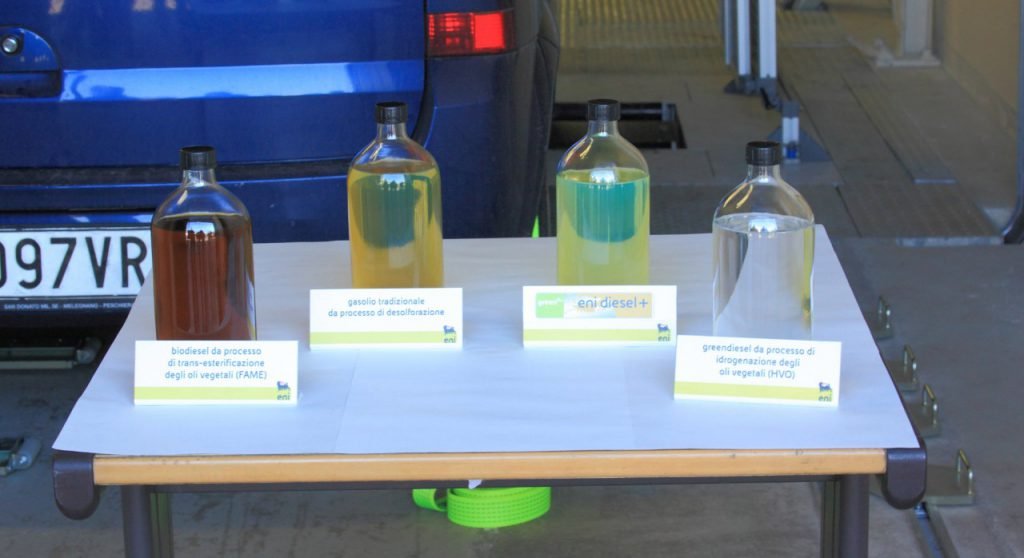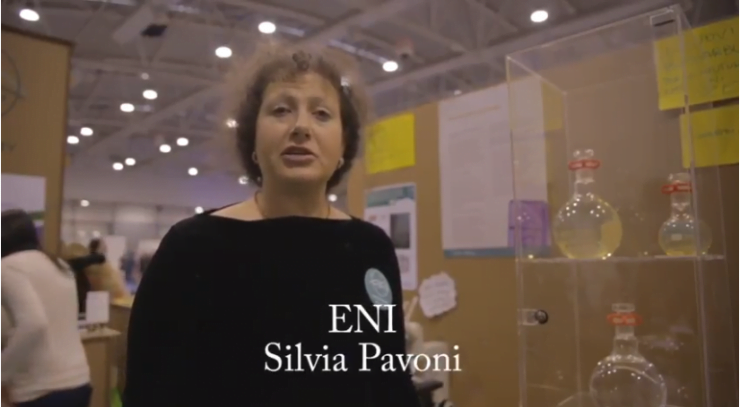The BIOWAYS project is carrying out a series of videos called 60” Science.
In each video an expert/researcher will explain a bio-based product or the results of his research.
Video #4 – New generations of biofuels with no environmental impacts
Silvia Pavoni from Eni presented new generations of biofuels with no environmental impacts and how agro industrial waste are used to produce microbial oils, a feedstock for advanced Green Diesel.
Biorefineries are a response to the European challenge of industrial transformation and a direct action towards the development of new generations of biofuels with no environmental impacts. Thanks to innovations related to the raw materials and processes, the refineries in Venice and Gela have been converted into more environmentally sustainable production facilities. Used food and vegetable oils are transformed into Green Diesel, a renewable component which composes 15% of a new Eni biofuel, i.e. “Eni Diesel +”. Gas emissions are reduced, and the circular economy is boosted.

Biofuels currently on the market largely derives from vegetable oils, a raw material usually devoted to the agri-food market.
In order to avoid this competition, Eni has developed a process in which waste biomasses, such as wheat straw and corn stalks, are used as raw materials. Through a fermentation process with special oleaginous yeasts, Eni transforms these wastes into microbial oils, with a chemical composition similar to those obtained from plant crops such as palm and rape.
The process consists of two steps: an initial saccharification, which transforms the cellulosic component of the raw materials into simple sugars (glucose), and a subsequent fermentation in which yeasts metabolize the sugars and accumulate up to 70% of microbial oils into the cells. Such oils are then extracted and sent to biorefineries for the production of advanced biofuels such as “Greendiesel”.

Follow BIOWAYS to keep on discovering the world of bioeconomy
www.bioways.eu


